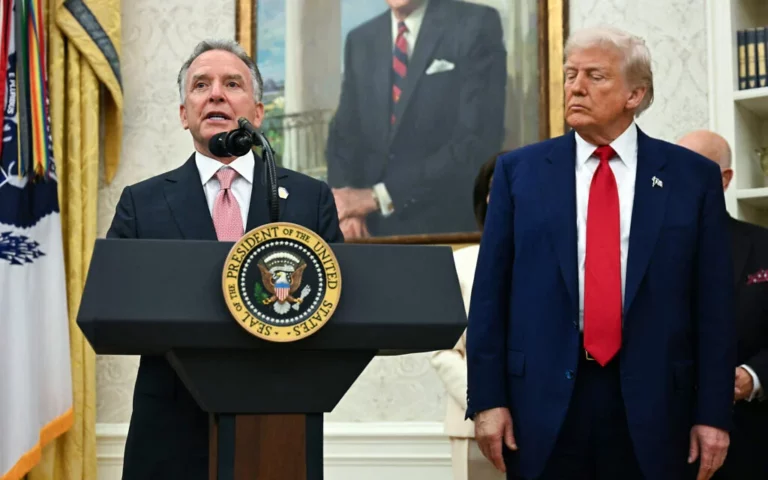 Fox News reports:
Fox News reports:
The revolution may have started in Tunisia where ongoing protests forced the country’s foreign minister to step down Thursday. It then spread to Egypt on Tuesday, taking aim at the 30-year rule of President Hosni Mubarak.
And now it has migrated to Yemen, where tens of thousands of anti-government protesters demanded Thursday that another U.S. ally step down: Yemen’s president, who has held power for 32 years.
But the spark for this wave of revolutions may have started during the Bush administration when Secretary of State Condoleezza Rice gave a seminal speech at the American University in Cairo:
“For 60 years, the United States pursued stability at the expense of democracy in the Middle East — and we achieved neither,” Rice argued during her 2005 speech which came across as a direct challenge to the Mubarak regime, a regime that receives billions of dollars in U.S. foreign aid, the second highest after Israel.
“Now, we are taking a different course. We are supporting the democratic aspirations of all people.”
The Bush administration’s argument was that if the people of the Middle East don’t have political freedom then Arab youth will be pushed into mosques where they are readily recruited by Al Qaeda.
President Obama tried to pick up the baton — with another speech in Cairo shortly after he took office.
“All people yearn for certain things — the ability to speak your mind and have a say how you are governed,” President Obama said in his June 4, 2009, outreach to the Muslim world.
“Government that is transparent and doesn’t steal from the people; the freedom to live as you choose. These are not just American ideas, they are human rights, and that is why we will support them everywhere.”
But Obama failed to mention this week’s Egyptian protests in the State of the Union address. And in her first remarks after the Egypt riots broke out, Secretary of State Hillary Clinton at first looked as though she were siding with stability at the expense of democracy.
“Our assessment is that the Egyptian government is stable,” Clinton said.
The next day the administration did an about-face, calling for the Mubarak regime not to block social media websites, a weak endorsement of the protesters, according to Middle East experts.
“I think they are at sea,” said former Middle East negotiator Aaron David Miller, currently at the Woodrow Wilson Center. “I mean, the paradox here is that the Bush administration that made this a priority, didn’t have or didn’t witness, preside over the kinds of changes that are now possible in this region and I don’t think the administration frankly knows quite how to respond.”
As evidence, Pentagon officials met with top Egyptian military leaders at the Pentagon Thursday. The previously scheduled meetings will continue until next Wednesday.
The Obama administration reluctantly inherited the Bush administration’s call for democracy in the Middle East.
“I think the Obama administration came to office with a much more nuanced view of the region. They were not interested in engaging in regime change,” said Miller, author of “The Much Too Promised Land.” “They wanted a low-key approach to what appeared to them the cookie cutter ideological approach to democratization in the region.”
The State Department was slow to embrace the Tunisian protests as well — then just one day before Tunisia’s president was forced to flee his country for Saudi Arabia, Clinton gave a speech in Doha.
“In too many places, in too many ways, the region’s foundations are sinking into sand,” Clinton said on Jan. 13. “If leaders don’t offer a positive vision and give young people meaningful ways to contribute, others will fill the vacuum.”
And that’s what worries the State Department. For now, these revolutions are youth-led and lack prominent leaders — even though the radical underground Muslim Brotherhood in Egypt is trying to attach itself to the movement.
Some experts argue it’s cautionary tale for the White House, which is still feeling the sting after Hezbollah, an Islamist group currently on the State Department’s terror list, engineered the fall of the Lebanese government earlier this month, and has now through democratic means chosen Lebanon’s next prime minister.
(Source: Fox News)











9 Responses
George W. Bush ≠ Condoleezza Rice
Support for Democracy ≠ Support for Chaos
even if they topple the current mubarak goverment nobody should think that they will replace him with democratic president. Its very scary…
This is laughably absurd and an insult to intelligence
To #1.
Rice does equal Bush. She worked for him, and she said what her boss wanted her to say.
and why didn’t he mention the Bush-Rize sponsered elections in the Gaza strip, that led to the controll of Hamas there…
I say the democracy theory doesn’t works with Arabs. Their culture is just the type that looks up to power, and can’t handle indevidual liberty. You would have to change the whole family structur in the Arab colture, where they all grow up with children and wives being enslaved by the father, etc.
There is no such thing as democracy in the middle east as long as you got Iran. They are there to undermine every government by playing the Islam card
This is nothing. I could care less about arab strife caused by anyone. But while along these lines, Bush did a lot of damage for Israel and Jews by initiating his little meetings in Bethesda, MD, introducing the idea of dividing up Yerushalayim.
I have no clue why so many Jews think the Bush administration yielded anything any better for Israel than all the other presidencies.
I can list SEVERAL anti-Jewish interests that Bush stood against totally more than what any other president has done, Republican or Democrat. Why do so many yidden like to like Bush???
#7 do you realize that egypt borders a control with 6 million jews and controls the suez canal? Do you realize that they are armed with f-16s and american weaponry? Of course you should care.
I did not like bush but he pales in comparison to the stupidity of obama in foreign affairs especially his plan to sell 90b in weapons to the saudis. Btw if egypt falls they are next.
He is continuing the disastrous war in Afghanistan and Iraq to prop up Iranian stooges.
What is failed to be mentioned regarding Bush is that his vision for democracy in the Middle East was, in fact, the brainchild of Natan Sharansky. Bush read and re-read over several times Sharansky’s book “The Case for Democracy: The Power Of Freedom to Overcome Tyranny And Terror,” which he supposedly kep by his bed-side.